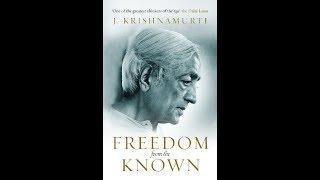Numerous cultures throughout the world have an extensive history of creation myths. The Mesopotamian artefacts from the third millennium B.C. to the end of the first millennium B.C. indicate that while many of the gods were associated with natural forces, no myth particularly addressed the origins of the universe. Simply simply, it was thought that gods existed prior to the world's formation. Almost none of the Sumerian literature from the third millennium B.C. has survived. Several fragmentary tablets contain references to a time before the birth of the gods, when only the Earth (Sumerian: ki) and Heavens (Sumerian: an) existed. Even though there was no moonlight or sunlight, the land was still green and there was water beneath the surface, despite the absence of any vegetation. First-millennium B.C. Sumerian poetry gives further information.
A legendary prologue opens the Sumerian story "Gilgamesh and the Underworld." It assumes that the universe and gods have always been and that the heavens and earth were once linked before becoming divided. After the creation of humans, the great gods divided the responsibility of preserving and exercising control over the heavens, the earth, and the underworld.
The Song of the Hoe, an early second-millennium Sumerian poem, portrays the origins of humanity. In this myth, as well as in numerous other Sumerian stories, Enlil is represented as the entity who divides the heavens from the earth and creates humanity. In Mesopotamian literature, the development of humanity to serve the gods is a constant theme.
According to the Sumerian poem "The Debate between Grain and Sheep," the earth at first appeared to be empty of grain, sheep, and goats. People were naked. They drank from ditches and ate grass for sustenance. Later, the gods created grain and sheep as food for humanity. According to "The Debate Between Bird and Fish," water for human use did not exist before Enki, the god of knowledge, created the Tigris and Euphrates and enabled water to flow into them from the mountains. He also created sheepfolds, marshes, and reedbeds, along with minor streams and rivers, and filled them with fish and fauna. He founded a monarchy, constructed cities, and ruled over other nations. In "The Debate over Winter and Summer," an unknown Sumerian author asserts that Enlil's copulation with the earth's hills is responsible for summer and winter, abundance, spring floods, and fertility.
Enki and the Universe Order, a second Sumerian story from the early second century, explains why the world appears to be organised. Enki concluded that maintaining order in the world was necessary to prevent anarchy. As a result, several gods were assigned managerial responsibilities, such as overseeing the heavens and earth, the acts of women, the waterways, the crops, the building operations, the management of wildlife, and the care of domestic animals.
According to the Sumerian fable "Enki and Ninmah," the lesser gods grumbled to Namma, the primal mother, about their difficult task of constructing the earth. She then roused her son Enki, the god of wisdom, and instructed him to create a replacement so the gods would not have to work. Namma then made the first humans after mixing clay and placing it in her stomach.
Like their Sumerian contemporaries, Babylonian poets had no explanation for the origin of the world. Among the other types of texts were numerous creation-related tales. Enlil, the former leader of the pantheon, was replaced by Marduk in the Babylonian creation story Enuma Elish, which provides a theological rationale for Marduk's elevation to supreme god. The poem was presumably composed during or just during the reign of Nebuchadnezzar I, which spanned the late twelfth century B.C. Babylon attained political and cultural independence at this time, following several years of foreign Kassite dynasty dominance. The poem hails the achievement of the city and serves as a political tract describing how Babylon displaced Nippur as the venue of religious ceremonies.
- Category
- Mythology


